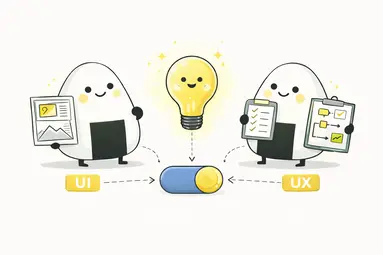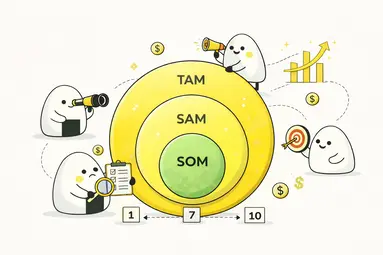
Black Friday Lessons for PMs: Ship Fast, Stay Sane
Black Friday lessons for PMs: a peak-season playbook for strategy, load, and ops—feature freezes, experiments, and incident readiness without chaos.

Black Friday Lessons for PMs: Ship Fast, Stay Sane, Learn Lots
Peak season (Black Friday, Cyber Monday, holiday spikes) is where product hits reality. Traffic surges, expectations spike, and tiny UX issues become revenue leaks. The best Black Friday lessons for PMs aren’t about “doing more.” They’re about deliberate focus: a tighter scope, a safer release plan, and a clearer learning loop so you exit the weekend smarter than you entered.
This guide gives you a practical playbook: what to lock down, what to measure, how to experiment safely, and how to keep stakeholders aligned when everything’s moving fast.
Set the Strategy: What Are We Solving This Year?
Black Friday punishes vague goals. Pick one primary outcome for the peak window (e.g., reduce checkout drop-off 10% or improve site reliability at 99.95%). Make it a SMART goal with a guardrail so you don’t “win” by breaking something else.
If you need a quick refresher on outcome framing, this walkthrough helps teams write SMART goals that actually steer decisions.
Decide your stance:
- Stability first: reliability SLOs, traffic shedding plan, no high-risk UI changes.
- Conversion boost: a handful of low-risk UX wins and promo clarity.
- Both, but staged: reliability locked two weeks prior; tiny conversion tweaks behind flags.
Write the stance down. Share it. When stakeholders pitch last-minute ideas, you’ll have a principled “yes/no.”
Stabilize: Feature Freeze, Guardrails, and Load
Black Friday is an operations problem disguised as a product day.
Feature freeze (and friends)
- Freeze date: T-7 to T-10 days. Only P0 fixes after that.
- Maintain a “break-glass” list: the 2–3 changes you will allow if metrics tank (e.g., disable video banners, switch to static hero).
- Confirm rollback paths: one-click flag off, or a single revert PR.
Guardrails to protect revenue
- SLOs: availability, error rate, p95 latency on key endpoints (home, PDP, cart, checkout).
- Functional guardrails: payment declines, promo application failures, login friction.
- Support guardrails: spike alerts on chat volume for “coupon not working” and “can’t pay.”
Load & chaos readiness
- Rehearse load tests with realistic traffic shapes (bursty, not linear).
- Run a 60-minute game day: kill an integration in staging, throttle an API, check degradation paths.
- Document “if X, then Y”: rate-limit recommendations, drop non-essential widgets, switch image quality.
Convert: Checkout & Promo Readiness
Big spikes magnify the basics. Focus on clarity, speed, and trust.
Promo clarity
- One phrase, everywhere: “Auto-applied at checkout” or “Enter code at payment step.” Don’t mix.
- Cap the edge cases: stacking rules and exclusions are where users bail.
- Disable confusing variants (e.g., two banners with different codes) during peak.
Checkout friction audit (90 minutes)
- Remove optional fields.
- Autofill + saved details.
- Clean error states (“Card declined by bank—try another card” beats a code).
- Trust signals: clear shipping dates, returns, privacy.
Mobile first
Peak traffic is mobile. Test your top flows on throttled networks and older devices. If a flow is fragile on mobile, it’s fragile, period.
Experiment (Safely): Learning Without Risking Revenue
Peak season is not the time for risky experiments—but it is the time for surgical tests with hard stops.
How to test without harm
- Segments, not site-wide: small percent of traffic or low-risk geos.
- Short windows: hours, not days, with automatic stop if guardrails trip.
- Primary metric + guardrail: e.g., +CTR on promo without ↑ payment failure.
- Pre-computed sample sizes: avoid peeking bias; stop at pre-set thresholds.
Great experiments look boring: clearer copy, simpler defaults, nudges to saved payment. The goal is incremental lifts you can scale later, not heroics.
If you want a structure that connects discovery → testable changes, this primer is a solid starting point.
Communicate: Stakeholders, On-call, and War-Room Rhythm
Pressure creates noise. Replace noise with rituals.
Before the weekend
- Publish a one-pager: stance, freeze date, guardrails, who’s on point, where to watch metrics, and what triggers rollback.
- Set a quiet channel for incidents (#war-room) and a broadcast channel (#bfcm-updates). Keep them separate.
During the event
- Stand-ups (15 min) every 4–6 hours between shifts: state of metrics, top risks, decisions made, next check-in.
- Single source of truth dashboard pinned in the channel.
- One voice to execs: concise updates with metric screenshots, not narratives.
On-call clarity
- Rotation: app, infra, payments, promos, CS representative.
- Decision owner: 1 human with the authority to roll back or disable features.
Metrics to Watch (and When)
Real-time / hourly
- Availability, error rate, p95 latency on cart/checkout
- Payment authorization rate (by PSP), promo application success
- Add-to-cart rate, checkout start rate, checkout completion rate
Twice daily
- Conversion rate by device + geo
- Average order value and discount leakage
- Support tickets by top reason (coupon, pay, login)
Daily wrap
- New vs returning customer behavior
- Funnel fallouts (step-level)
- Worst 3 regressions, best 3 lifts (with decision log entries)
Post-Mortem: Codify the Wins
Don’t let learnings evaporate.
72-hour debrief
- What saved us (playbooks to keep)?
- What cost us (fix within 14 days, not “someday”)?
- Which experiments deserve a full rollout (and where)?
- What to standardize for the next peak (e.g., promo glossary, banner rules, rate-limit settings)?
Share the receipts
A short write-up with screenshots of the metrics builds credibility for the next ask (budget, headcount, or tech debt).
Common Pitfalls & Fixes
- Last-minute features
- Fix: Freeze. If it’s truly critical, ship behind a flag with an instant rollback.
- Promo confusion
- Fix: One message, one code behavior, mirrored across banners, PDP, cart, checkout.
- Experiment sprawl
- Fix: One or two tests max; tight segments; stop on guardrail breach.
- Unclear incident ownership
- Fix: One decision owner per shift; clear escalation tree pinned.
- No rollback path
- Fix: Pre-merge toggles and feature flags; document the “off” switch.
- No post-mortem
- Fix: Book it now. Within 72 hours. Nothing else will stick if you skip this.
Conclusion
The best Black Friday lessons for PMs are really evergreen habits turned up to eleven: make a clear choice of stance, protect stability with freeze + guardrails, fix checkout clarity, run surgical experiments with stop-losses, and communicate like an adult under pressure. Do that, and you won’t just survive the rush—you’ll leave with a repeatable playbook and hard-won insights you can compound all year.
FAQs
Read More Posts

Unlocking the Synergy of UI and UX Design for Product Success

Master the Market: A Guide to TAM SAM SOM for Product Leaders
.webp)
The Comprehensive Guide to How NPS is Calculated for Product Growth
.webp)
Understanding DAU Meaning: A Guide to Tracking Daily Active Users
.webp)
Data Security: Essential Guide to Protection and Privacy
.webp)


